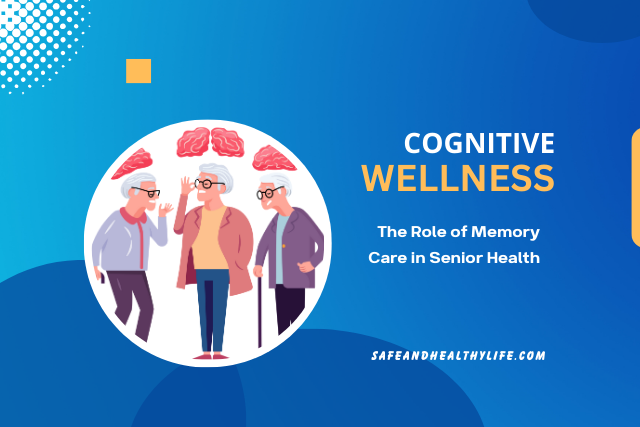
You may also like:
- Wellness Escapes: Senior Travel for Mind and Body
- Why is Geriatric Therapy Good for Seniors
- How Can Seniors Improve Their Immune Systems?
Memory loss, illogical reasoning, and a general decline in one’s cognitive ability are some potential challenges of getting older.
Memory care is a highly specialized form of care tailored specifically to senior citizens’ cognitive demands, and it takes the front stage in this context.
In this in-depth article, we’ll explore the memory care’s crucial roles in enhancing seniors’ health and fostering cognitive well-being.
Improving Mental Toughness And Resilience
Memory care programs typically include activities that have been thoughtfully selected in order to provide patients with individualized types of mental stimulation.
The difficulties that are offered within the context of these exercises are intended to stimulate memory, cultivate capabilities of problem-solving and critical thinking, and increase capabilities in these areas.
By participating in these particular exercises, senior citizens have the opportunity to maintain their already-existing cognitive capacities while also improving their mental agility.
This, in turn, fosters the development of a sense of accomplishment as well as intellectual energy, which is a situation in which everyone involved benefits.
Creating A Safe Haven To Reside In

Memory care facilities are developed with a significant focus on the security of elderly patients.
They are geared up with safety measures such as lockable doors, non-slip flooring, and sturdy railings, all designed to limit the risk that anybody will get wounded in an accident and reduce the severity of any injuries that may result.
In addition, trained staff members are constantly available to provide assistance, which helps preserve the health of the senior residents and lowers the probability that they will be exposed to any potential dangers.
Creating And Strengthening Social Bonds
When it comes to elderly people, the prospect of spending too much time alone might play a part in the acceleration of cognitive degeneration, which can be a negative outcome.
It is the responsibility of memory care facilities to organize a variety of social activities and get-togethers for their patients, with the goal of fostering a sense of community among the individuals who are receiving care there.
These participatory activities not only help to alleviate feelings of desolation and melancholy, but they also make a substantial contribution to the overall mental health and well-being of the people who take part in them.
Organizing the Provision of Specialized Medical Care

It is a decision of the utmost significance to pick the appropriate form of care for an aging family member or friend.
As the aging process continues, individuals may require specialized care tailored to their requirements, particularly regarding their cognitive health. Memory care and nursing homes are two of the most common options, and each has distinct advantages.
When deciding between memory care versus a nursing home and determining the optimal senior care solution, it is important to weigh the various advantages provided by memory care facilities.
The provision of specialized cognitive support is where memory care truly shines, whereas nursing homes are known for their thorough medical care and wide range of services.
Families can make an educated decision that puts their loved one’s well-being and quality of life at the forefront by grasping the benefits offered by both options.
Thrive By Customizing Your Diet To Your Specific Needs
A diet that is not only nutritious but also full of diversity helps provide the groundwork for improved mental health.
This can be accomplished by eating foods from a wide range of food groups. When formulating their meal plans, memory care institutions put a great deal of thought and consideration into meeting the specific dietary requirements of their elderly patients.
As a result of the fact that the meals included in these programs are typically those that are rich in nutrients and brimming to the brim with antioxidants and omega-3 fatty acids, they contribute to the promotion of cognitive health.
Giving Support To Families
Problems with one’s memory extend beyond the scope of the individual and might have an effect on the family as a whole.
Education and assistance are both beneficial. Memory care facilities often offer a wide range of teaching resources, in addition to support groups that are organized expressly for members of the patient’s family.
It is feasible to build a holistic approach to caregiving by providing families with the information and resources necessary to build an integrated system.
This will make it possible to develop a holistic approach to caregiving. Because of this, it is possible for seniors and the people who care about them to go along this route together.
Conclusion
Memory care is emerging as a beacon of promise within elder health care because of its ability to nurture cognitive well-being.
Seniors and their families are ready to not only negotiate the challenges offered by cognitive alterations but also to do so with grit and hope if they embrace the many roles that memory care plays in the process.
About The Author:
Stacey Smith is a freelance health writer. She is passionate about writing about women’s health, dental health, diabetes, endocrinology, and nutrition and provides in-depth features on the latest in health news for medical clinics and health magazines.




